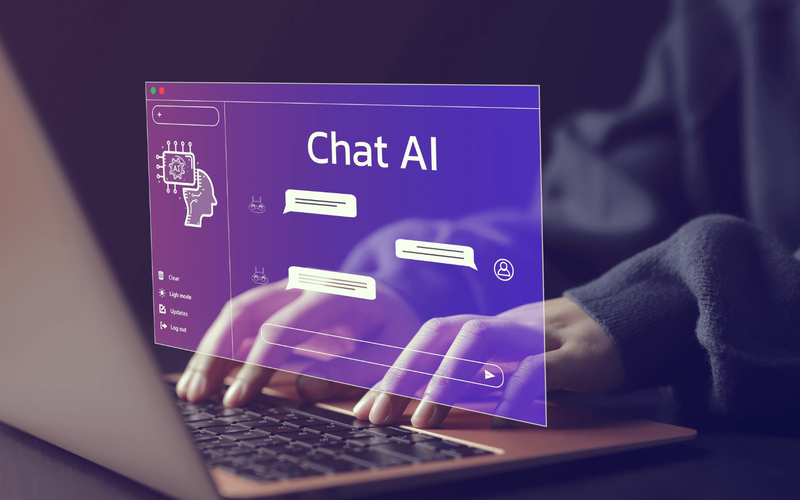In an increasingly digitised world, online exam proctoring can give the assessment process integrity. But what exactly is exam proctoring, how does it work, and what do you need to consider when choosing an online proctoring service?
What is exam proctoring?
Essentially, it’s the supervision of students during an examination, so the test is administered fairly and there is no opportunity to cheat. Particularly in online settings, this can be tricky, which is why proctoring is such a useful tool. Online exam proctoring continues to gain popularity, thanks to the enduring interest in online learning. It allows candidates to take exams remotely, and gives adjudicators the ability to monitor and maintain compliance with academic honesty standards. For organisations delivering exams online, the challenge is choosing a proctoring approach that fits the assessment’s level of risk. Platforms like Synap include integrated online exam proctoring tools that range from light-touch automated monitoring to full AI + human proctoring. This gives admins the control they need to maintain exam integrity while keeping the candidate experience smooth.
How do proctored exams work?
Online proctoring uses a combination of technology, human oversight, and software tools to make sure the exam is conducted properly. Candidates are typically required to log into a secure platform where their identity is verified, and their exam session is monitored.
What are the different types of online proctoring?
There are several types of online proctoring solutions available:
- Live Proctoring: A real-time proctor supervises the exam through a webcam, ensuring that candidates follow the rules.
- Automated Proctoring: Software tools monitor the exam session using artificial intelligence to detect unusual behaviour, such as looking away from the screen or using prohibited materials.
- Record and Review: The exam is recorded, and a proctor reviews the footage after the exam to check for any irregularities.
Why is integrity important in proctored exams?
Maintaining integrity in proctored exams is vital for ensuring that the results accurately reflect a candidate's knowledge and skills. Cheating undermines the value of the qualification being obtained and can lead to severe consequences for both candidates and institutions. Using a platform with built-in controls - such as secure online exam proctoring in Synap, which includes lockdown mode, breach detection, identity checks and more - helps institutions uphold fairness while reducing the administrative burden of running remote assessments.
How does online proctoring work?
What technology is used in online exam proctoring?
Online exam proctoring relies on various technologies, including:
- Webcams: To monitor candidates during the exam.
- Screen-sharing: To ensure that the exam environment is secure.
- AI algorithms: To analyse behaviour patterns and flag any suspicious activity.
What is the role of a proctor during an online exam?
The role of a proctor during an online exam is to ensure that candidates adhere to the rules of the examination. This includes monitoring the exam environment, verifying candidate identities, and intervening if any violations occur. With personal proctoring, proctors can provide real-time support, while an exam proctoring solution ensures the integrity of the testing process.
How does live proctoring compare to automated proctoring?
Live proctoring provides real-time oversight by a human proctor, while automated proctoring uses technology to monitor candidates without direct human intervention. An online proctor can facilitate this process, ensuring candidates remain compliant. Live proctoring offers direct oversight, whereas automated proctoring scales more efficiently for larger cohorts. Synap supports both approaches through Synoptic automated proctoring and Rosalyn’s AI + human proctoring, giving institutions flexibility depending on exam stakes and budget.
Types of online proctoring services
What are the main types of online proctoring solutions?
When choosing an online proctoring service, candidates should consider the following options:
- Human Proctors: Experienced professionals who supervise exams in real time.
- AI Proctors: Automated systems that analyse behaviour and flag potential cheating. You can compare both in our breakdown of Synap’s proctoring options, which highlights features, monitoring levels, device and browser requirements.
What factors should be considered when choosing a proctoring service?
Several factors should be evaluated when selecting a proctoring service, including:
- Cost: Understanding the pricing structure of different services.
- User experience: Ensuring that the platform is user-friendly and accessible.
- Security features: Assessing the measures in place to protect exam integrity.
Ensuring exam integrity
How can online proctoring prevent cheating?
Online proctoring employs various strategies to prevent cheating, such as:
- Identity verification: Candidates may need to provide ID before starting the exam.
- Monitoring software: Programs that track eye movement, keystrokes, and screen activity during the exam. Proctoring is most effective when combined with wider anti-cheat measures like question randomisation, timed sections, copy/paste restrictions and IP lock-downs - all of which are built into Synap’s online proctoring and exam security tools.
What measures are taken to verify a candidate's identity?
Identity verification typically involves a combination of photo ID checks, biometric verification (such as facial recognition), and sometimes even live video interviews.
How does proctoring software monitor the exam session?
Proctoring software monitors the exam session by capturing video and audio, tracking the candidate's screen, and analysing behaviour patterns to detect any irregularities, especially when candidates take the exam through a proctoring online platform.
Preparing for a proctored exam
What steps should candidates take before the exam day?
To prepare for a proctored exam, candidates should:
- Review the exam guidelines and requirements.
- Ensure their technology is compatible with the proctoring platform.
- Find a quiet, distraction-free location for the exam.
What technical requirements must be met for online exams?
Candidates should check that they have:
- A reliable internet connection.
- A functional webcam and microphone.
- The required software was installed ahead of the exam.
How to schedule and access the online proctored exam?
Educators typically schedule online proctored exams through their chosen exam platform, often integrated with proctoring tools. Candidates receive instructions on accessing the exam, completing any setup, and verifying their identity. On exam day, they simply log in and follow prompts to start under supervision, ensuring a smooth and secure process.
Common challenges with online exam proctoring
What are potential issues candidates face during online proctoring?
Candidates may encounter challenges such as:
- Connectivity issues.
- Technical difficulties with their devices.
- Unfamiliarity with the proctoring software.
How to troubleshoot connectivity problems during the exam?
If candidates experience connectivity issues, they should:
- Ensure their internet connection is stable.
- Restart their router or device if necessary.
- Contact technical support provided by the proctoring service or exam platform..
What to do if you encounter technical difficulties on exam day?
In case of technical difficulties, candidates should have a plan in place, including:
- Knowing how to reach technical support quickly.
- Being aware of alternative contact methods if the online platform fails. In conclusion, understanding exam proctoring is essential for candidates looking to succeed in a digital assessment environment. By utilising online exam proctoring services like Synap, you can ensure that your exams are conducted with integrity and professionalism. If you’re exploring remote assessment options, Synap offers built-in proctoring designed for everything from low-bandwidth automated monitoring to full AI + human supervision. Discover how our online exam proctoring toolssupport secure, scalable exams - or book a demo to see Synap in action.
Frequently asked questions for exam proctoring
What does proctoring the exam mean?
Proctoring an exam refers to the supervision and monitoring of candidates during an examination to ensure they adhere to the established rules and guidelines. This process can take place in person or online, with proctors being responsible for verifying the identity of test-takers, monitoring their behaviour, and ensuring the integrity of the exam. In online settings, proctoring often involves technology that captures video, audio, and screen activity to prevent cheating and maintain academic honesty. Additionally, the review process of recorded sessions helps uphold these standards.
Can proctored exams detect cheating?
Yes, proctored exams are designed to detect cheating. They employ various monitoring techniques, such as video surveillance, screen monitoring, and behaviour analysis, to identify suspicious activities. Proctoring software can flag unusual behaviour, such as looking away from the screen frequently or using unauthorised materials. If any violations are detected, proctors can take appropriate actions, which may include terminating the exam or reporting the incident to the relevant authorities.
Can a proctored exam see your screen?
Yes, many online proctored exams can see your screen. Proctoring software typically includes features that allow it to monitor the candidate's screen during the exam. This ensures that test-takers do not access unauthorised materials or resources while completing the assessment. Candidates are usually informed about these monitoring practices before the exam begins, ensuring transparency about what is being recorded.
Is someone watching you during a proctored exam?
In live proctoring scenarios, yes, a human proctor is actively watching candidates during the exam. This real-time oversight allows proctors to ensure compliance with exam rules and to intervene if any suspicious behaviour is observed. In automated proctoring, while there may not be a human watching you live, the system still monitors your actions using AI algorithms and video recordings to detect any potential cheating. Candidates should be aware that their exam sessions are being monitored, regardless of the proctoring method used.


-min.png)
